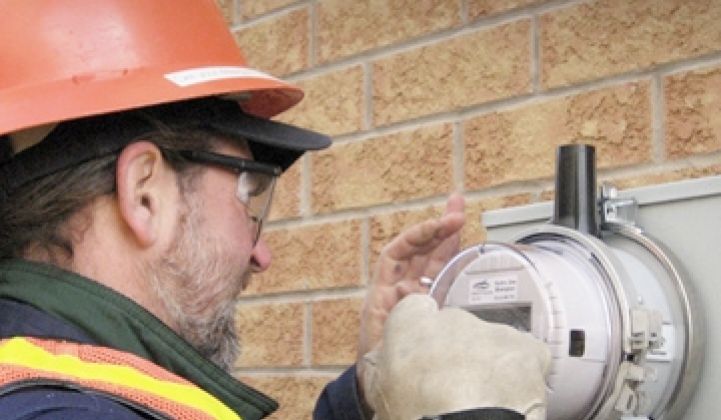The utility industry and analyst have long said that one of the first major steps in conserving energy in the U.S. will come with time-of-use pricing on a large scale.
Burbank, Calif. will help provide a window onto that issue next year. Trilliant has won a deal to provide some of the initial smart electrical meters, along with software and control systems, to Burbank Water and Power. In all, BWP plans to install 77,000 smart meters for electricity (final vendors to be determined) and water meters. The system, ideally will save 20 gigawatt hours of power a year. Siemens and eMeter, which develops software for mining and tracking meter data, are also partners with BWP.
As part of its smart meter project, BWP will also convert all its large customers – i.e. those that need 250 kilowatts or more – to time-of-use pricing. Time-of-use pricing effectively tries to match power consumption better with its true costs. Those who use more peak power in the afternoon ultimately pay for it. Ideally, pricing will prompt heavy power users and later consumers to invest in energy efficient technologies, such as LED bulbs, or devices that can shift power consumption to the morning or evening, such as ice air conditioners.
Some utilities and politicians, in fact, are already contemplating subsidy programs for ice-powered air conditioners, which mostly consume power at night, to shave the peak off of midday power consumption in California.
Early tests indicate that consumers will respond to price signals. In a trial conducted in Oklahoma last year, consumers were surprised and concerned when they found out how much power things like air conditioners consumed.
At the other end of the spectrum is Bakersfield – home of California produce, Merle Haggard, and irate PG&E customers. Some citizens claim that smart meters installed by the utility are overcharging them for power. A class action lawsuit has been filed. For its part, PG&E states that the increases come from rate increases approved by the state's bureaucracy and an unusually hot summer.
The Bakersfield meters are not wired for time-of-use pricing. Nonetheless, time-of-use metering and pricing potentially will raise the power bills of customers if they do not take preventative action.
What will happen? It's hard to say. On one hand, BWP's time-of-use metering program will initially be targeted as its largest, and presumably most sophisticated consumers when it comes to energy consumption. The Bakersfield brouhaha has also convinced many that utilities need to communicate the need and function of smart meters. The alternative to shaving peak power, Tendril Networks CEO Adrian Tuck likes to point out, is rolling black outs.
On the other hand, Californians – whether the subject is property taxes, tuition hikes or unpopular governors – have a distinct love for the populist revolt.



